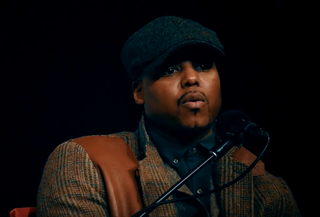A Quote by Gordon S. Wood
I think [John] Adams was correct when he said that his May resolutions were "an Epocha, a decisive Event," and tantamount to a declaration of independence.
Related Quotes
All of depiction is fiction, it's only a question of degree. When we think of images, such as the signing of the declaration of independence, we think of that wonderful John Trumbull painting Declaration of Independence that is at the Yale Art Gallery and on the back of our money. When we think of that historical moment we think of that image. That image never happened like that. All of those people were never in that room together to sign that paper. It's a beautiful fiction to help us have an understanding of what went on.
According to Adams, Jefferson proposed that he, Adams, do the writing [pf the Declaration of Independence], but that he declined, telling Jefferson he must do it. Why?" Jefferson asked, as Adams would recount. Reasons enough," Adams said. What can be your reasons?" Reason first: you are a Virginian and a Virginian ought to appear at the head of this business. Reason second: I am obnoxious, suspected and unpopular. You are very much otherwise. Reason third: You can write ten times better than I can.
The thing to remember about the Declaration of Independence and the profession of freedom is that it was written by people who were quite free and who were surrounded by people who were not free. The people who wrote the Declaration of Independence were ventriloquists really. The obsession with freedom makes no sense when it applies to them.
Pope John Paul II himself was kind of a rather independent, creative man. I remember being told by somebody who worked very close with him in preparation for his first visit to the United States in 1979, he studied our normative documents, Declaration of Independence, the Federalist Papers, the Constitution. And he was amazed. He called his priests first
thing in the morning and he said, he said, I thought America was a pagan country.




























